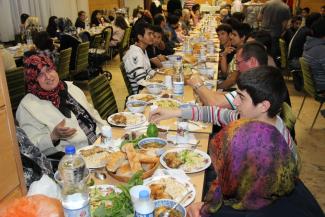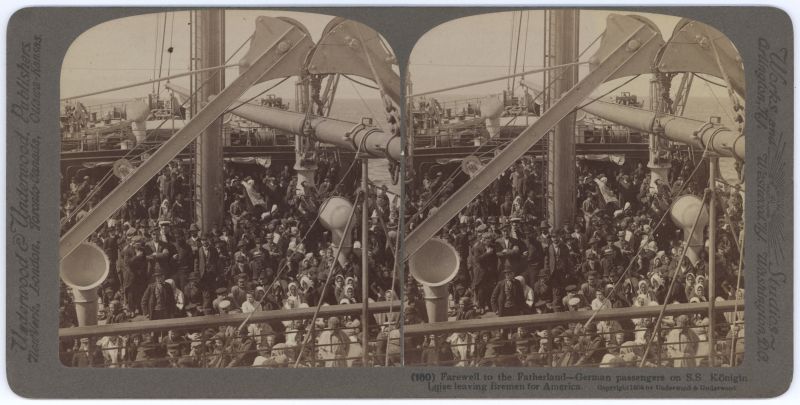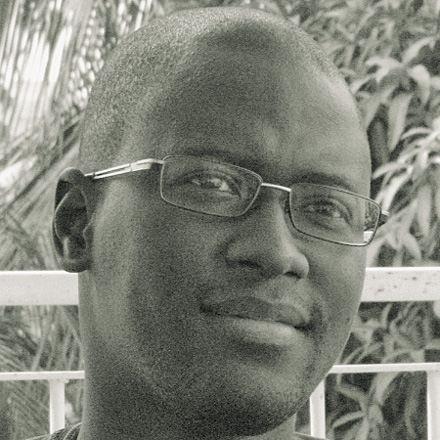Turkish immigrants
Divided community with identity problems

The first Turks came to Germany as labour migrants almost 60 years ago. They were called “Gastarbeiter” – guest workers – because they were supposed to stay in the country for only a limited time. But many settled in Germany permanently, had children and grandchildren here. Today, around 3 million people with Turkish roots live in Germany, and roughly half of them have the German citizenship. Turkish immigrants – and Islam, accordingly – are now part of German society. Nonetheless, many of the first generation’s children and grandchildren have identity problems. They have no clear sense of belonging to either Germany or Turkey; they are caught between two worlds.
The problem is fuelled even more by Turkish President Recep Tayyip Erdogan. “Assimilation is a crime against humanity” is a much-quoted sentence from a speech he gave in Cologne in February 2008. At the time, he was at the zenith of his power. At home, he enjoyed widespread support, even though he had not yet extended control over the media. Abroad, he was regarded as a reformer who would strengthen the Turkish economy and move closer to the EU. But as Yasar Aydin, a social scientist specialising in Turkish affairs, explains: the Cologne speech was perceived by the Germans as a threat, even though most of its content was actually unproblematic. “A foreign head of state mobilising people in Germany was unprecedented. Nothing like that had ever happened before.”
Erdogan thus paved the way for the policy he would adopt towards Turks living in Germany. Many of them were increasingly receptive to that kind of propaganda. Racist attacks in Solingen and Mölln and later the activities of neo-Nazi terror cells like the NSU (National Socialist Underground) shattered the Turkish community’s confidence in German state institutions.
“We are your protectors”
“Erdogan took those developments as an excuse to send a signal to the Turkish diaspora: we are your protectors”, says Atila Karabörklü, federal chair of the Turkish Community of Germany (TGD). After winning the parliamentary elections of 2002, Erdogan’s Justice and Development Party (AKP) placed a special focus on Turks living abroad. In 2004, the Union of European Turkish Democrats (UETD) was founded to lobby for the AKP.
In 2008, the Turkish parliament amended electoral law and for the first time allowed Turkish citizens living abroad to vote in elections and referenda without having to travel home. In 2010, the AKP government established the Presidency for Turks Abroad and Related Communities (YTB). Among other things, it hands out scholarships to students of Turkish origin and provides funding for the establishment of Turkish-language high schools and cultural centres in Europe.
Before Turks abroad were able to vote, there was no direct way they could have an impact on developments in their country of origin – but there were indirect ways. “The influence of diaspora Turks on Turkey and vice versa is a multicomplex and multifarious issue, with footprints changing over time,” says Karabörklü. From the 1960s to the 1980s in particular, Turks living abroad sent a great deal of money home and thus contributed to economic growth in Turkey. Moreover, all of the political movements in Turkey were active in Germany from the outset and financially supported their parent organisations in Turkey.
With Erdogan’s increasingly autocratic policies, Karabörklü has noted an increase in intra-Turkish conflicts, which also directly influence the diaspora. The TGD Federal Chair expresses regret that this has resulted in “trench warfare within the community, but also in a deepening rift with the majority society”.
On the one hand, there is the Turkish involvement in conflicts in Syria, the Caucasus and, most recently, the Aegean, which isolate Turkey internationally. Then there are issues where Turks living in Germany fall between two stools, such as Turkish national football players saluting the Turkish army invasion of Northern Syria. The German side demands disassociation, the Turkish side demands solidarity. “There is pressure from both sides,” Karabörklü says.
Wedge felt in Germany
At the same time, President Erdogan’s sustained divisive politics have driven a deep wedge into Turkish society, which can also be felt in Germany. There is no longer a basis for dialogue between liberals, Kemalists, Alevites and Erdogan’s nationalist, conservative and Islamist supporters. “Turkish society is fundamentally divided into two camps that are locked in political conflict: supporters of the Erdogan government – Cumhur Ittifaki – and the opposition – Millet Ittifaki. There is deep hostility between the two camps,” Karabörklü explains. Compounding problems, even Erdogan’s opponents often do not find common ground among one another.
Turkey’s political leadership supports this friend-or-foe mentality. Political scientist Ayca Arkilic notes that especially “Turkish Sunni groups have responded positively to Turkey’s involvement in the diaspora”. Other migrant groups such as Alevites and non-Islamic organisations are “not part of that inner circle”.
In recent years, public debate in Germany has focused on the role of the Islamic association DITIB (Turkish-Islamic Union for Religious Affairs). Founded in 1984 as a branch of the Turkish Directorate of Religious Affairs, it coordinates around 960 of the 2,600 mosques in Germany from its headquarters in Cologne. The federal chair of DITIB is also the counsellor for religious and social affairs at the Turkish embassy and is thus directly linked to the Turkish state. In recent years, the DITIB mosques have become a political instrument of the Turkish government.
The religious attachés sent out to Turkey’s consulates have always monitored mosque communities. Since the failed coup attempt in Ankara, the focus has widened to include political leanings. After July 2016, the attachés instructed imams – who are Turkish officials – to spy on Gülen supporters in their congregations. The followers of the Islamic preacher Fethullah Gülen are blamed for the attempted coup (see my article in Focus section of D+C/E+Z e-Paper 2017/12). This has created a climate of mistrust. What is more, the federal governing body of DITIB has joined the religious attachés in working to step up the pressure on regional associations and remove Erdogan critics from the ranks. This has even brought DITIB to the attention of Germany’s Office for the Protection of the Constitution.
TGD chair Karabörklü warns against attributing all these developments to Erdogan alone. “Turkey is more than the president,” he stresses. The Turkish diaspora’s focus, he says, is on macro-level developments, with a desire for socio-political change in Turkey. But its efforts bear no fruit. According to Turkey expert Yasar Aydin, opposition voices from abroad go unheard in Turkey. “Exiled Turks and critical journalists like Can Dündar may try to form a kind of opposition but they have no impact.” The reasons for this, according to Aydin, are that the opposition in Turkey fails to speak with one voice and can hardly make itself heard in a media landscape that toes the government line. Voices from abroad certainly fall on deaf ears.
Timur Tinç is part of the editorial staff at the Frankfurter Rundschau, a German daily newspaper.
timur.tinc@fr.de










